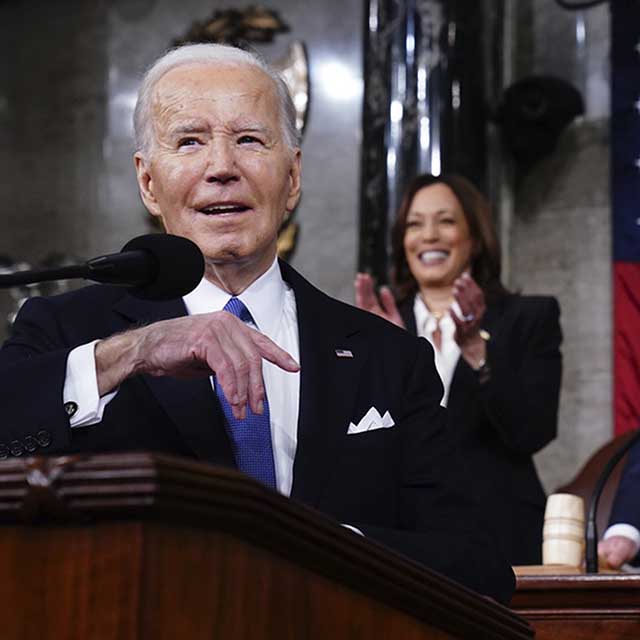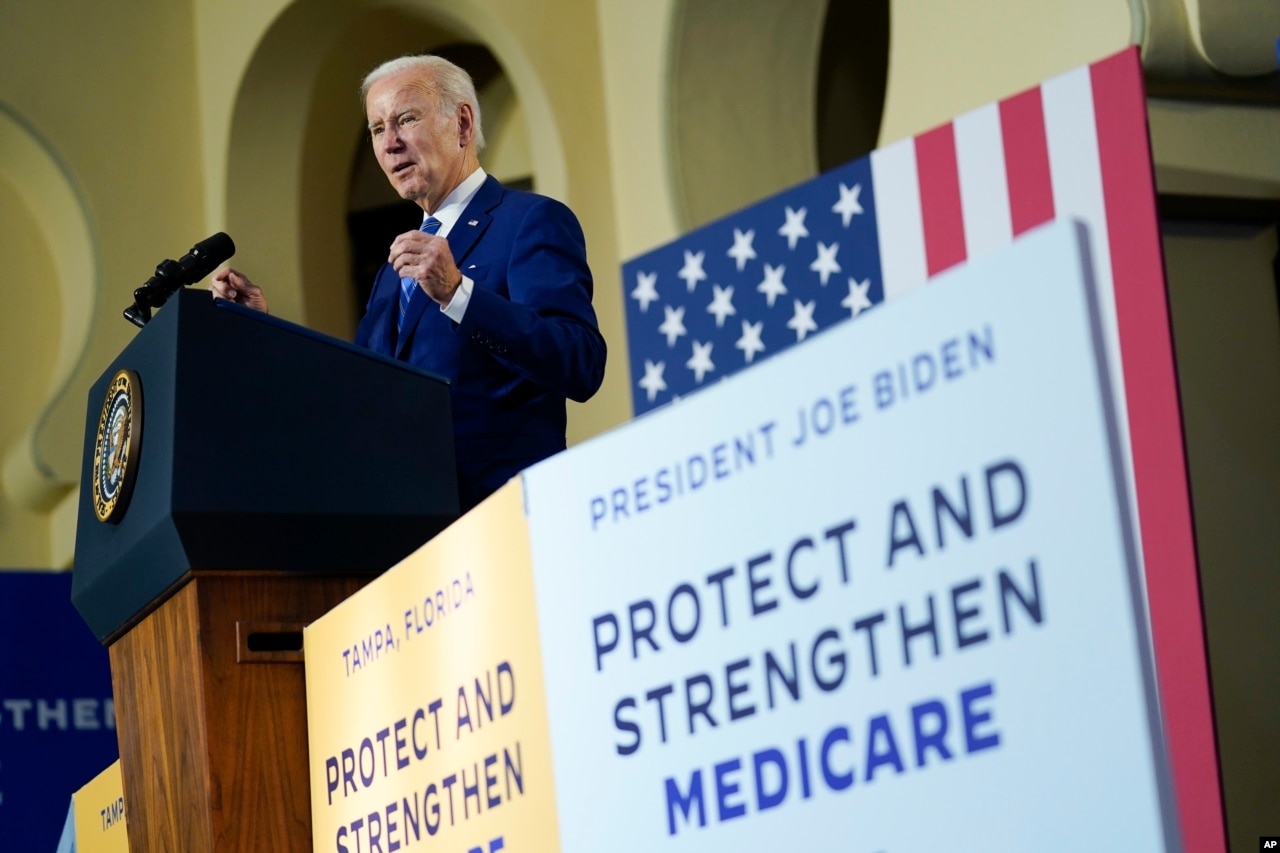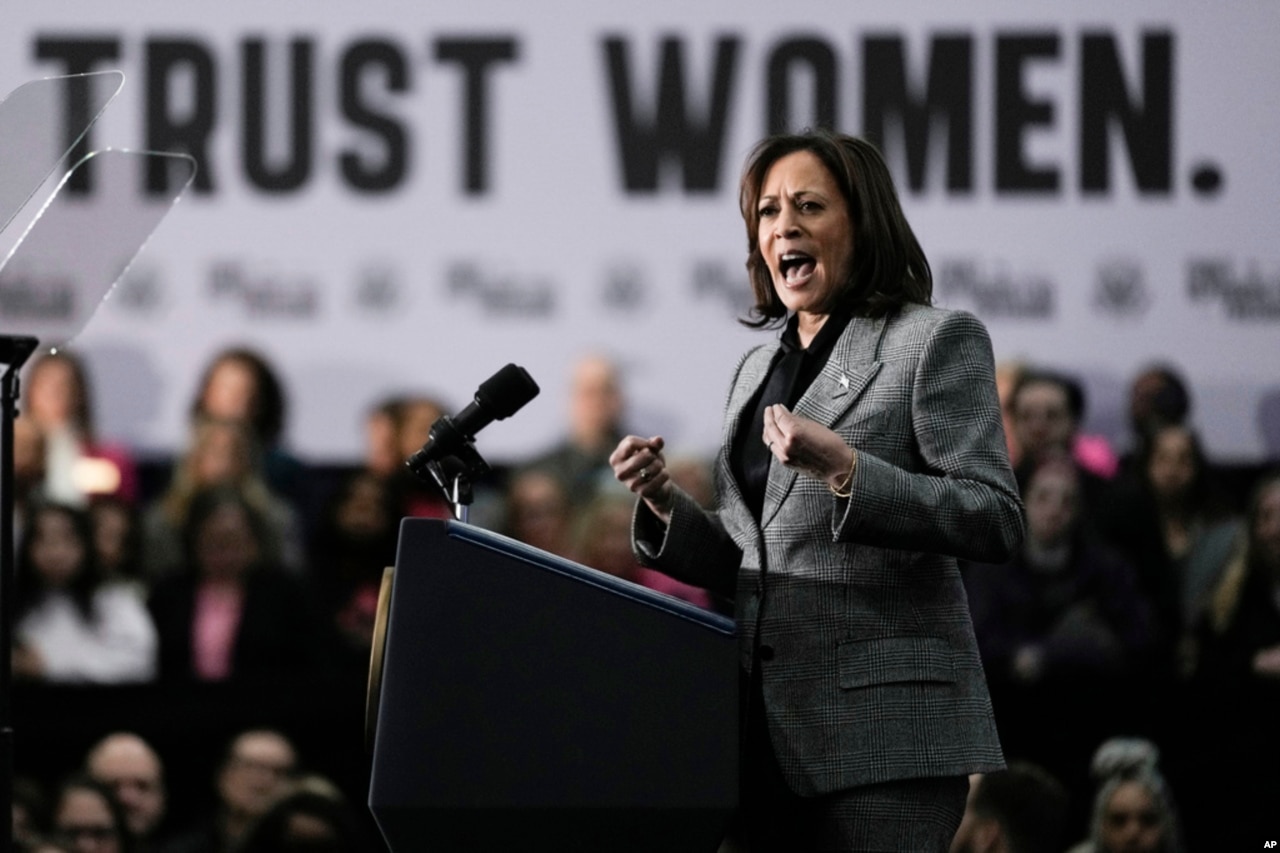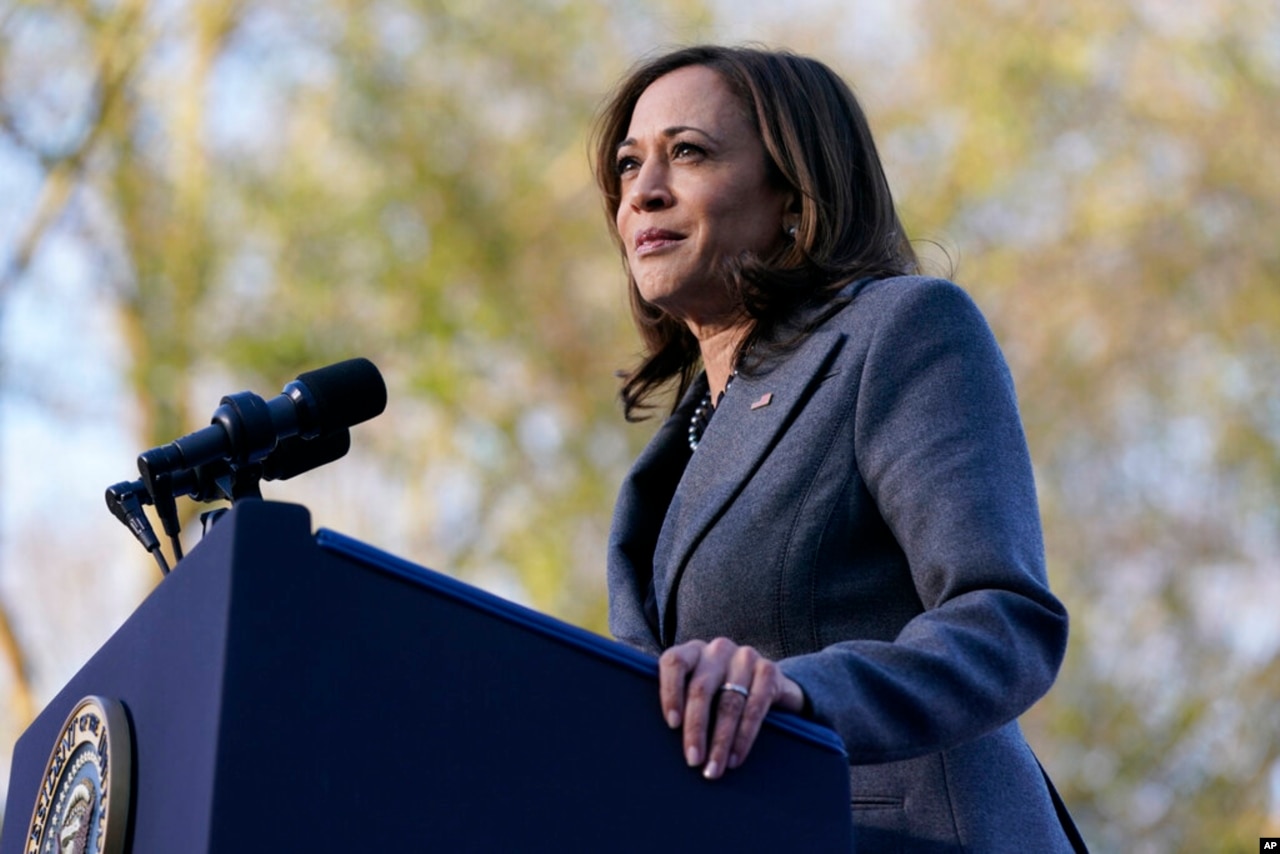
What would Harris do differently?
Vice President Kamala Harris has been a loyal supporter of President Joe Biden’s agenda during her time in office. If elected president, would she continue Biden’s policies or chart her own course?

(AP)
Following President Joe Biden’s decision not to seek reelection, Harris became the new Democratic Party nominee. As Biden's rival for the 2020 nomination before she became his running mate, Harris highlighted important differences between their records and favored policies — differences that could return to the fore as she seeks the presidency.

President Joe Biden

Vice President Kamala Harris
Immigration

PresidentJoe Biden
As a senator, Biden supported restrictions on immigration such as the 1986 Immigration Reform and Control Act and opposed so-called “sanctuary cities” that do not report undocumented immigrants to federal authorities. In his 2020 campaign, however, he opposed then President Donald Trump’s attempt to cut federal funding to sanctuary cities, as well as Trump’s policy of separating families detained at the border. During his presidency, Biden advocated a pathway to citizenship for some categories of undocumented immigrants but also passed restrictions on the right to seek asylum.

Vice PresidentKamala Harris
As district attorney of San Francisco, Harris supported the city’s sanctuary policies. In the Senate, she fought against Trump’s family separation policies, opposed detention of pregnant women by Immigration and Customs Enforcement, and pushed for comprehensive legislation granting permanent status to undocumented immigrants who arrived as children.
Environment

PresidentJoe Biden
During his Senate career, Biden introduced in 1986 the first congressional bill to combat climate change and sponsored several other environmental protection bills. As a presidential candidate in 2020, he did not fully endorse the Green New Deal proposed by progressive Democrats but later adopted aspects of it in his platform. During his presidency, Biden rejoined the Paris Agreement from which the Trump administration withdrew and passed sweeping reforms aimed at reducing carbon emissions. However, environmental groups have criticized him for not doing enough and for his refusal to ban natural gas extraction through hydraulic fracturing, or fracking.

Vice PresidentKamala Harris
In her 2020 campaign, Harris endorsed the Green New Deal and proposed a $10 trillion plan to eliminate carbon emissions by 2035. In addition to ending subsidies for fossil fuels and instituting a carbon tax, she has previously supported a ban on fracking. However, since accepting the nomination she has backed away from her opposition to fracking, saying that a ban would not be necessary.
Education

PresidentJoe Biden
In contrast to more ambitious proposals for universal free higher education, Biden has focused on specific measures such as making community colleges free and raising the award amount of Pell Grants. His plan that would have forgiven up to $20,000 in college debt for 40 million borrowers was struck down by the Supreme Court.

Vice PresidentKamala Harris
During her 2020 campaign, Harris proposed limited debt forgiveness for specific categories of graduates. Earlier, she had supported Senator Bernie Sanders’ plan to eliminate tuition for community college students and students at four-year public universities whose families earn under $125,000 per year.
Health care


PresidentJoe Biden
Before and during his presidency, Biden has opposed universal health care proposals such as the Medicare for All Act. Instead, he advocates expanding the Affordable Care Act passed under the Obama administration by creating a public insurance option while granting tax credits for private insurance premiums. He has also sought to reduce prescription drug prices and to lower the Medicare eligibility age to 60.

Vice PresidentKamala Harris
While in the Senate, Harris cosponsored a Medicare for All bill introduced by Sanders and supported efforts to create a public insurance option. During her 2020 campaign, she proposed a more moderate Medicare for All plan that would be implemented over 10 years while leaving an option for private insurance.
“Women have authority to make decisions about their own lives and their own bodies.”
Kamala Harris, during an MSNBC town hall meeting in 2019
Abortion


PresidentJoe Biden
As a senator, Biden previously supported restrictions on abortion, but has become an abortion rights advocate over the years. In the wake of the Supreme Court ruling that overturned Roe v. Wade, he has called for federal legislation to restore previously existing abortion protections.

Vice PresidentKamala Harris
Harris has a 100% rating from abortion rights group Reproductive Freedom For All (formerly NARAL Pro-Choice America). During her 2020 campaign, she proposed that any new abortion regulations passed by states should require federal clearance before going into effect.
Israel

PresidentJoe Biden
Since the 1970s, Biden has been one of the most staunchly pro-Israel voices in the Democratic Party, supporting continued military and economic aid to Israel while advocating for a two-state solution. But now, he has come under criticism within his party for continuing to supply arms to Israel in its war against Hamas, even as the mounting civilian death toll among Palestinians in Gaza has elicited global outcry.

Vice PresidentKamala Harris
While Harris has often stressed her support for Israel and its right to defend itself, she has differed from Biden in more explicitly expressing concern for Palestinians. In March, she became one of the first major figures in the Biden administration to call for a cease-fire and has reportedly urged the president to put more pressure on Israel to address humanitarian concerns.
Technology

PresidentJoe Biden
Rather than directly regulate technology companies, Biden has urged Congress to pass laws protecting data privacy and called for industry leaders to adopt voluntary safeguards for the use of artificial intelligence. However, an executive order has empowered federal agencies to create new standards for reporting and sharing information relating to AI development.

Vice PresidentKamala Harris
As California’s attorney general, Harris spearheaded efforts to regulate tech companies, creating the Privacy Enforcement and Protection Unit. While she has called for more direct regulation and oversight of AI development, she also retains close ties to Silicon Valley and support from the tech industry.
Drugs

PresidentJoe Biden
During his Senate career, Biden established himself as an anti-drug crusader, having helped launch the War on Drugs. Since the 1970s, he has opposed marijuana legalization and supported multiple laws increasing sentences for drug users. However, Biden’s position has softened to where he now supports marijuana’s decriminalization and rescheduling for potential medical use.

Vice PresidentKamala Harris
Although she initially opposed marijuana legalization, Harris now supports legalizing it at the federal level and expunging prior convictions. She has also proposed policies taxing marijuana and using the funds to invest in minority communities.
Trade

PresidentJoe Biden
In the Senate, Biden often voted in favor of free trade agreements such as NAFTA, as well as the USMCA that replaced it. Although he strongly supported the Trans-Pacific Partnership (TPP) negotiated by the Obama administration, he has not sought to rejoin it following the Trump administration’s withdrawal from the deal.

Vice PresidentKamala Harris
Harris has said she would have opposed NAFTA and voted against the USMCA due to its failure to address climate change. She also opposed the TPP on the grounds of insufficient labor and environmental protections.
“If they fail to act, as president of the United States, I am prepared to get rid of the filibuster to pass a Green New Deal.”
Kamala Harris, during a CNN climate crisis town hall meeting in 2019
Congressional procedure


PresidentJoe Biden
Having earned a reputation for bipartisanship, Biden has long opposed abolishing the filibuster option that allows the minority party to block any measure whose support falls short of a 60-vote supermajority. However, following the overturning of Roe v. Wade, he has indicated he would make an exception if it was necessary to protect abortion rights.

Vice PresidentKamala Harris
Harris has indicated she would first attempt to work with Republicans but would be prepared to abolish the filibuster if it stood in the way of passing climate legislation.
As Biden’s vice president, Harris has backed his positions, and the two have worked closely together. While a Harris presidency would likely continue some policies of the Biden administration, her previous campaigns indicate the possibility of a reconfigured agenda.